Publications
Articles, publications, books, tools and multimedia features from the U.S. Institute of Peace provide the latest news, analysis, research findings, practitioner guides and reports, all related to the conflict zones and issues that are at the center of the Institute’s work to prevent and reduce violent conflict.
Question And Answer
Blinken’s China Trip Shows Both Sides Want to Stabilize Ties
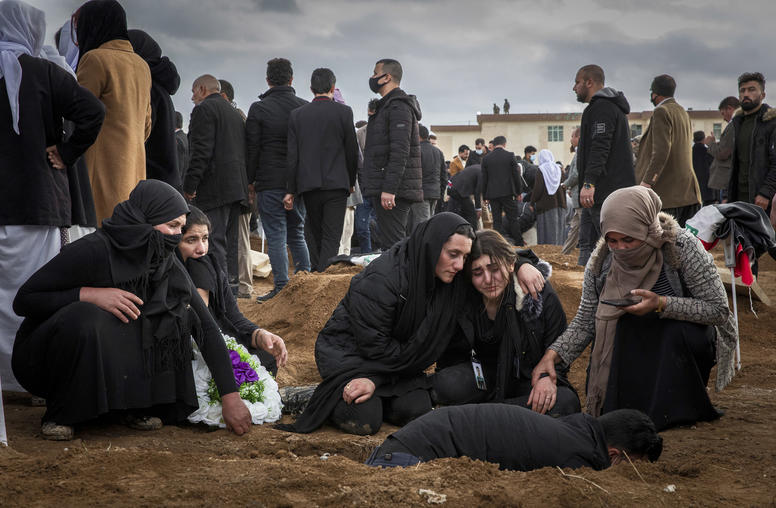
A New Test for Iraq’s Democracy and Stability
The sudden crisis around Russia threatens democratic norms and energy markets worldwide, only heightening the urgency of stabilizing Iraq, the world’s fifth-largest oil producer. Yet five months after Iraq’s elections, held in response to massive protests against ineffective governance, political factions remain dangerously deadlocked in efforts to form a new government. Shaping a more stable, peaceful Iraq—and responding to the 2019-2020 grassroots demands for democratic, accountable governance—will require a fuller inclusion of Iraq’s ethnic and religious minorities. Yet the prospects remain unclear. Iraq’s minority communities are watching carefully, as their future depends on it.

Knox Thames on the State of Global Religious Freedom
It’s been 40 years since the U.N. adopted a resolution to end persecution based on faith and defend religious minorities. USIP’s Knox Thames says decades later, “It’s a work in progress … While the situation is bleak, there is a global movement that is starting to build and trying to meet this challenge.”
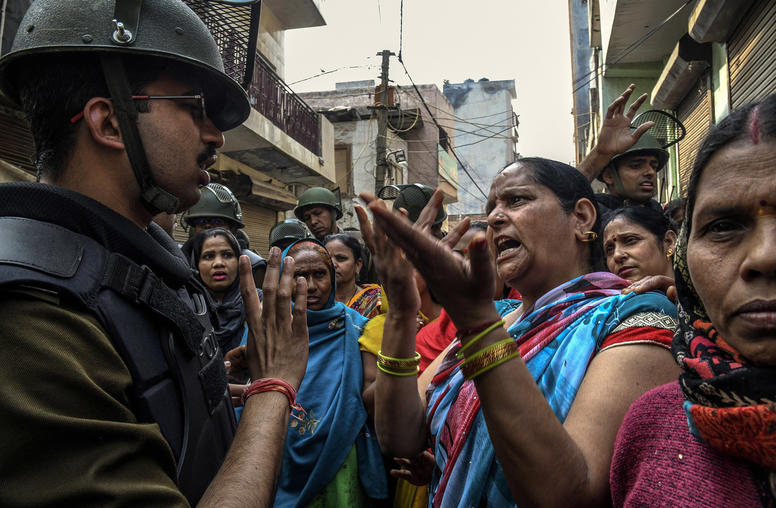
Unrealized Ideal: 40 Years After a Seminal Declaration on Religious Freedom
Anniversaries serve as natural inflection points, opportunities for introspection, to take stock and to consider where to go next. November 25 marked the 40th anniversary of the 1981 U.N. Declaration on the Elimination of All Forms of Intolerance and of Discrimination Based on Religion or Belief. Despite its unwieldy name, the aim was simple: to promote freedom of religion or belief and condemn discrimination based on faith. The 1981 Declaration was a culmination of almost four decades of U.N. efforts to develop international legal protections for freedom of belief to defend minorities from persecution. Forty years later, however, almost two-thirds of humanity live in countries with restrictions on the practice of faith.
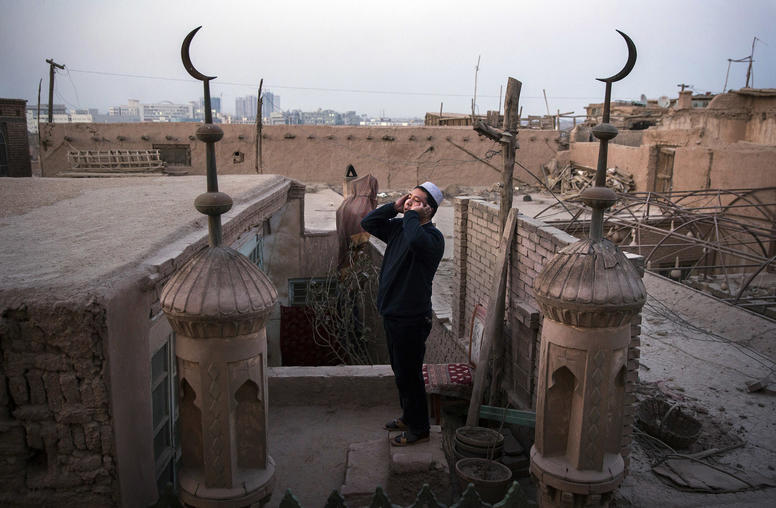
Finding Common Ground on U.S. International Religious Freedom Policy
On May 12, Secretary of State Antony Blinken issued the Biden administration’s first annual religious freedom report. It was accompanied by a strong speech, highlighting the importance of the issue and singling out countries such as Saudi Arabia, Iran, Russia and Nigeria, among others, for their particularly severe violations. The secretary also made a point to establish that the Biden administration’s approach emphasizes that the right to religious freedom is one component of an integrated human rights agenda. This stands in contrast to others who view religious freedom to be of unique importance and deserving of singular attention.

How Military Chaplains Are Key Agents for Peace for the U.S. Armed Forces
Over the past few decades, U.S. military chaplains have increasingly played a key role in promoting peaceful resolutions in conflict environments. While their primary mission across the service branches is pastoral care — leading religious services, providing counsel and offering spiritual guidance, for example — military chaplains have also, at times, served as liaisons and bridge-builders with local religious leaders.
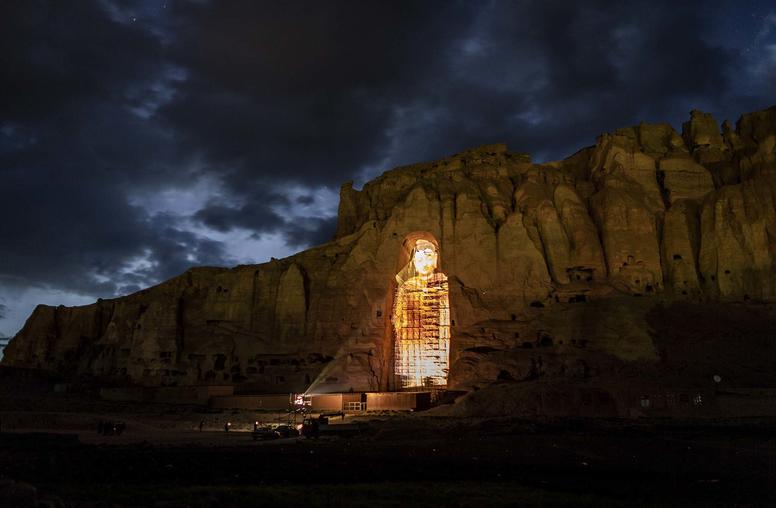
Missing Piece of the Puzzle: Preserving Religious Diversity by Protecting the Past
The United Nations General Assembly in January adopted a noteworthy resolution, “Promoting a Culture of Peace and Tolerance to Safeguard Religious Sites,” highlighting the often-ignored nexus between protection of cultural heritage and preservation of religious pluralism and peaceful coexistence. The resolution’s aims are broad, calling for “strengthened international efforts to foster a global dialogue on the promotion of a culture of tolerance and peace at all levels.” But it also mandates the U.N. secretary-general to convene an international conference focusing on the “United Nations Plan of Action to Safeguard Religious Sites.”

Knox Thames on the State of Global Religious Freedom
As global restrictions on faith reach all-time highs, USIP’s Knox Thames say the United States must continue to be a vocal leader in combatting persecution and pursuing religious freedom, saying, “I think the time is right … anything we say goes out like a megaphone to the rest of the world.”
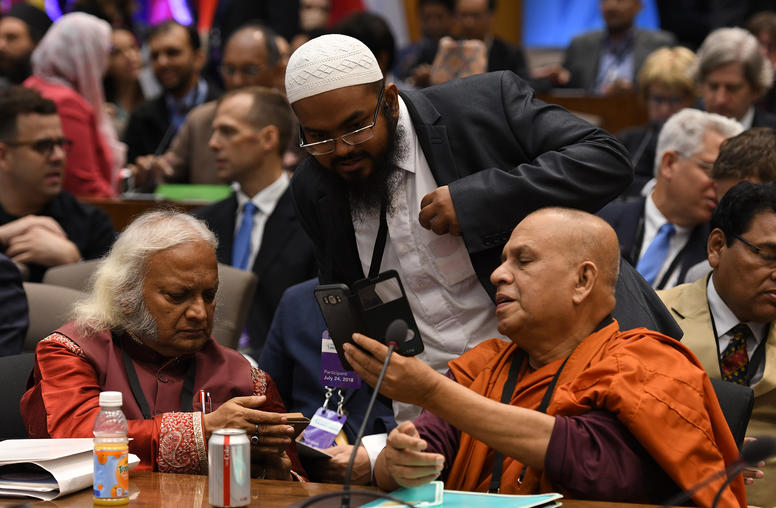
Human Rights Education as the Solution to Religious Persecution
Persecution on account of religion or belief confronts every community somewhere around the world—and it is an increasing trend. Challenges range from terrorist violence against minorities, such as ISIS’ depravations against Yazidis, to persecution by authoritarian governments, with China’s targeting of all faiths a prime example. To organize a defense of freedom of conscience and belief, the United States convened the Ministerial to Advance Freedom of Religion or Belief in 2018 and 2019, bringing together a virtual congress of nations and civil society activists from around the world. The third ministerial, organized by Poland, was held virtually in mid-November. Discussions identified challenges but also solutions. One consistent answer to the vexing problem of persecution was proffered: educating youth about human rights and pluralism.

Rising Religious Revanchism in Turkey and India Has Dire Consequences
Forced conversions are usually about people. But two sacred sites were recently transformed in Turkey and India, with potentially dire consequences for those countries and the world.
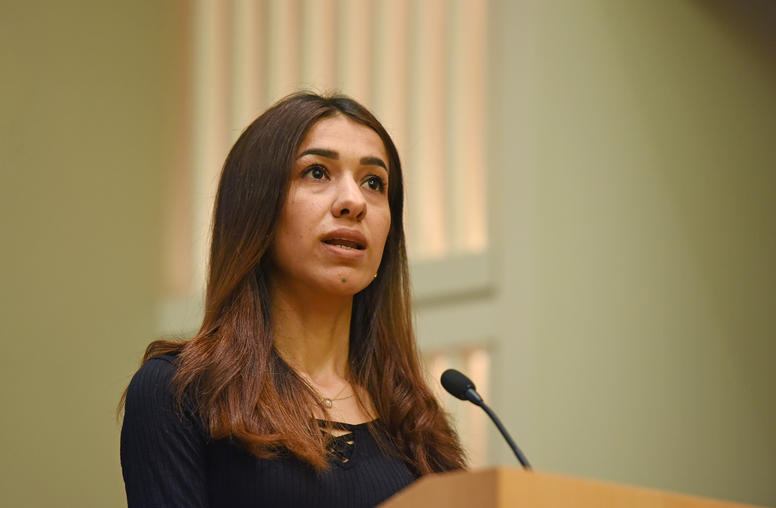
Nobel Laureate Nadia Murad Appeals for Aid to Save Yazidi Society
Nadia Murad, the sad-eyed, soft-spoken Nobel laureate and voice of the Yazidi genocide, warned that her people along with Christians and other minorities are slowly disappearing from Iraq. Faced with challenges that include uncertain security, lack of health care, stalled reconstruction and inability to leave refugee camps, Yazidis and other minority groups urgently need international help if they are to survive as components of Iraq’s national character, she said.